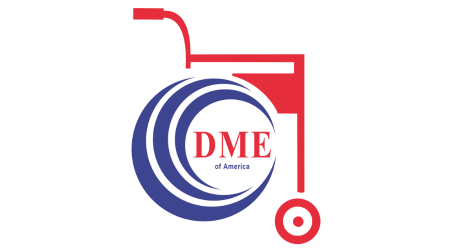The fast world, which we all live in, but sometimes right, even such common as bearing daily needs living aids.
Disabling problems or just limited mobility become the big barrier in that way of life.
The great news is that the developments in technology are the genesis of intelligent gadgets known as daily living aids.
The technology, on the other hand, is intentionally manufactured to help conduct everyday activities, boosting the sense of independence, and hence promoting quality of life. Let us have a look at these intelligent solutions and how they are the pillars of life.
Mobility: Daily Living Aids:
DME of America Provide a wide range of quality medical equipment for patient care. Mobility: living aids, in their broad semantics, allow the use of different gadgets that assist those who are mobile impaired to get around safely and independently. From the simple walking stick to the more modern electric scooters and stair lifts, many products can meet the user's specific needs and choices. These devices are not only for physical support but also enhance self-assurance and foster active living methods.
Adaptive Kitchen Tools:
The preparation of meals could be a problem for people with narrow fingers and weak muscles.
Adaptive kitchen accessories like ergonomic utensils, openers that work with ease with jars, and customized cutting boards help people with disabilities cut up vegetables or open cans a lot easier.
Through these smart living aids, individuals can cook without feeling limited for physical reasons.
Smart Home Automation:
Technology in the smart home has redefined our definition of living, and it most impacts those disabled, DME Scooter mobility challenged, or anyone compromised by special needs.
These voice-activated assistants, like Amazon Alexa or Google Home, can do house staff control, light and thermostat control, for example, and even manage home appliances, making it possible for individuals to control their houses with ease.
There are also smart doorbells and security cameras, which are part of home automation and provide added safety and peace of mind.
Communication Devices:
Communication is the key factor that allows us to maintain social connectivity and reach out to important services.
People with speech or hearing impairments can use all kinds of communication devices, including text-to-speech software, augmentative and alternative communication (AAC), and hearing daily living aids, to have full communication with others without any barriers.
These devices have enabled people to put forth themselves in a more effective way, and the conversations that they engage in could have far-reaching benefits.
Personal care and living aids:
Respecting personal hygiene and grooming can be quite an arduous task for people with disabilities or limited movement.
A range of personal carers' equipment, including long-handled brushes, shower chair for elderly, and adaptive clothing, facilitates individuals with external help while carrying out their necessary grooming tasks.
Such daily living aids promote independence because they ensure that individuals can carry out their hygiene tasks smoothly.
Medication Management Tools:
Regular immunization, taking medication within due time, and getting follow-ups, however imperfect, work well for chronic condition maintenance and general health.
Nevertheless, it becomes easy to miss out on or forget the intake of these medications for those who experience cognitive failures or complex medication treatments.
A pill organizer with alarm features and an automatic pill dispenser, along with medication reminder apps, are convenient tools that enable anyone to remain organized and compliant with their medicine routines.
Assistive Devices for Vision Impairment:
The impact of vision impairment on daily life is profound, affecting activities such as reading, writing, and navigating abstruse environments.
With the help of devices like magnifiers and screen readers, as programmers, people who have less vision will be able to access information and tasks independently.
These tools improve access and promotion in both private and workplace environments as well.
Financial and organizational aids:
Managing finances and staying organized are tasks that may be difficult for everyone, but they become daunting jobs for those with dementia or memory problems.
Meanwhile, online banking, financial management apps, and digital calendars assist individuals with agenda planning, bill payment, and important task tracking.
Such living aids ultimately create independence and reduce anxiety through the provision of structure and support within daily life settings.
Conclusion
Home devices used in everyday tasks and activities are becoming the new standard for people with disabilities or limited mobility.
From mobility-based daily living aids and adaptive kitchen tools to smart home automation and communication devices, these smart solutions not only enhance independence but also promote inclusion and improve quality of life.
Through the utilization of these innovative technologies, we are going to have an inclusive community where everyone can find their way through life.
FAQs
Hey Siri, How do I choose the right mobility aid for my needs?
Consult with a healthcare professional for recommendations.
Are daily living aids covered by insurance?
Yes, depending on your insurance coverage and specific aids.
Can I customize my daily living aids to suit my needs?
Yes, many aids can be customized or modified.
How do I maintain and care for daily living aids?
Follow the manufacturer's guidelines for cleaning and maintenance.
Are resources available to learn how to use daily living aids effectively?
Yes, manufacturers provide manuals and support services.

